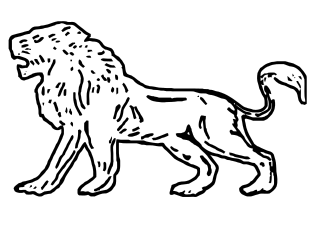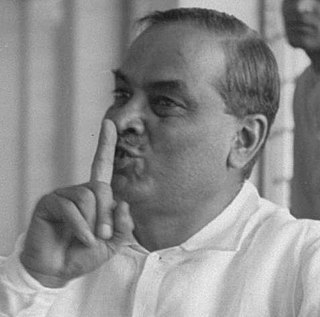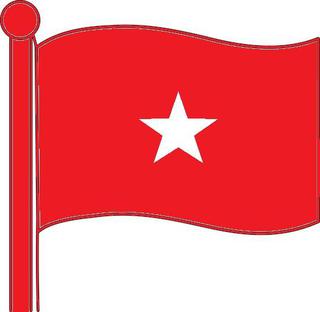Related Research Articles

The All India Forward Bloc (abbr.AIFB) is a left-wing nationalist political party in India. It emerged as a faction within the Indian National Congress in 1939, led by Subhas Chandra Bose. The party re-established as an independent political party after the independence of India. During the 1951–1952 and 1957 Indian general election, the party was known as Forward Bloc (Marxist). It has its main stronghold in West Bengal. The party's current Secretary-General is G. Devarajan. Veteran Indian politicians Sarat Chandra Bose (brother of Subhas Chandra Bose) and Chitta Basu had been the stalwarts of the party in independent India.

Revolutionary Socialist Party (RSP) is a communist party in India. The party was founded on 19 March 1940 by Tridib Chaudhuri and has its roots in the Bengali liberation movement Anushilan Samiti and the Hindustan Socialist Republican Army.
United Socialist Organisation was a left-wing alliance in India. The USOI was launched by Sarat Chandra Bose, the elder brother of Netaji Subhash Chandra Bose, after his resignation from the Indian National Congress in 1947. Bose wanted to assemble all the leftist groups in a common front. Most notably, the All India Forward Bloc under Sheel Bhadra Yagee joined USOI. However, a minority led by Forward Bloc chairman K.M. Joglekar disagreed with AIFB joining USOI. They broke away and formed the Forward Communist Party.
All India Forward Bloc (Subhasist), an Indian political party. AIFB(S) is a splinter group of All India Forward Bloc. AIFB(S) is mainly concentrated in West Bengal, Tamil Nadu and Karnataka. The party was founded in 1963 by Sasivarna Thevar, after a power vacuum led Thevar to try to take control of the All India Forward Bloc (AIFB) party in Tamil Nadu. When he failed, he quit to launch the Subhasist Forward Bloc party, a splinter group of the AIFB. The party is mainly concentrated in the states of West Bengal, Tamil Nadu and Karnataka. The Previous general secretary of the party was Late K. Kandasamy. Now Mr. Aveek Roy is National General Secretary.
The People's United Socialist Front was an electoral alliance in West Bengal, India, formed ahead of the 1952 West Bengal Legislative Assembly election. The front was composed of the Socialist Party, the Forward Bloc (Ruikar) and the Revolutionary Communist Party of India (Tagore).
The United Democratic People's Front was an electoral alliance in West Bengal, India, formed ahead of the 1957 West Bengal Legislative Assembly election. The front was composed of the Jana Sangh, the Hindu Mahasabha, the Revolutionary Communist Party of India (Tagore) and a section of independent Congress dissidents.
The United Left Front was an electoral alliance in West Bengal, India, formed ahead of the 1957 West Bengal Legislative Assembly election. The front comprised the Socialist Unity Centre of India, the Bolshevik Party of India, the Democratic Vanguard and the Republican Party.
The United Left Election Committee was an electoral alliance in West Bengal, India, formed ahead of the 1957 West Bengal Legislative Assembly election. The Committee consisted of the Communist Party of India, the Revolutionary Socialist Party, the Praja Socialist Party, the All India Forward Bloc and the Marxist Forward Bloc. The formation of the electoral alliance was announced at a mass meeting at Shahid Minar in January 1957.
The United Left Front was an electoral alliance in West Bengal, India, formed ahead of the 1962 West Bengal Legislative Assembly election. A key issue that provoked various left parties to join hands was the prevailing food crisis in the state. The front comprised the Communist Party of India, the Socialist Unity Centre of India (Communist), the All India Forward Bloc, the Marxist Forward Bloc, the Revolutionary Communist Party of India, the Bolshevik Party of India and the Revolutionary Socialist Party. The front won 74 seats out of 252.
The United Left Front was an electoral alliance in West Bengal, India, formed in December 1966, ahead of the 1967 West Bengal Legislative Assembly election. The front comprised the Communist Party of India (Marxist), the Samyukta Socialist Party, the Socialist Unity Centre of India, the Marxist Forward Bloc, the Revolutionary Communist Party of India, the Workers Party of India and the Revolutionary Socialist Party. The front won 63 seats out of 280. After the election ULF merged with the People's United Left Front, forming the United Front. The UF formed a state government, dislodging the Indian National Congress for the first time in the state.

The West Bengal State Assembly Election of 1952 was a part of the series of Legislative Assembly elections in 1952. It was the first ever assembly election held in West Bengal.

The West Bengal state assembly election of 1957 was part of a series of state assembly elections in 1957.
Socialism in India is a political movement founded early in the 20th century, as a part of the broader movement to gain Indian independence from colonial rule. The movement grew quickly in popularity as it espoused the causes of India's farmers and labourers against the zamindars, the princely class and the landed gentry. After independence and until the early 1990s, socialism shaped some economic and social policies of the Indian government, although they mostly followed the principles of dirigisme. After this period, India moved towards a more market-based economy. Though, India is officially declared a socialist state as per the constitution.
The Workers and Peasants Party (WPP) (also known as the Kirti Kisan Party) was a political party in India, which worked inside the Indian National Congress in 1925–1929. It became an important front organisation for the Communist Party of India and an influential force in the Bombay labour movement. The party was able to muster some success in making alliances with other left elements inside the Congress Party, amongst them Jawaharlal Nehru. However, as the Communist International entered its 'Third Period' phase, the communists deserted the WPP project. The WPP was wound up, as its leadership was arrested by the British authorities in March 1929.
Communism in India has existed as a social or political ideology as well as a political movement since at least as early as the 1920s. In its early years, communist ideology was harshly suppressed through legal prohibitions and criminal prosecutions. Eventually, communist parties became ensconced in national party politics, sprouting several political offshoots.

The Bolshevik Party of India is an Indian political party in India. The party was founded in 1939. The party had a certain role in the trade union movement in West Bengal and was briefly represented in the state government in 1969. In later years the party has played a negligible role in Indian politics.

Legislative Assembly elections was held in the Indian state of West Bengal in 1962.

Legislative Assembly elections were held in the Indian state of West Bengal in 1971. The assembly election was held alongside the 1971 Indian general election.
The Revolutionary Communist Party of India, also known as RCPI (Tagore), was a political party in India, led by Saumyendranath Tagore. RCPI (Tagore) emerged from a split in the Revolutionary Communist Party of India in 1948. RCPI (Tagore) had a very minor role in Indian politics. Tagore served as the chairman of the party. The party published the Bengali fortnightly Ganabani ('People's Voice').

Shantaram Savlaram Mirajkar was an Indian communist politician and trade unionist. He was part of the old guard of the Communist Party of India, led the All India Trade Union Congress as its president for many years and served as mayor of Bombay.
References
- ↑ M.V.S. Koteswara Rao. Communist Parties and United Front - Experience in Kerala and West Bengal. Hyderabad: Prajasakti Book House, 2003. p. 213.
- ↑ M.V.S. Koteswara Rao. Communist Parties and United Front - Experience in Kerala and West Bengal. Hyderabad: Prajasakti Book House, 2003. p. 214.
- ↑ List Of Political Parties Archived September 30, 2007, at the Wayback Machine